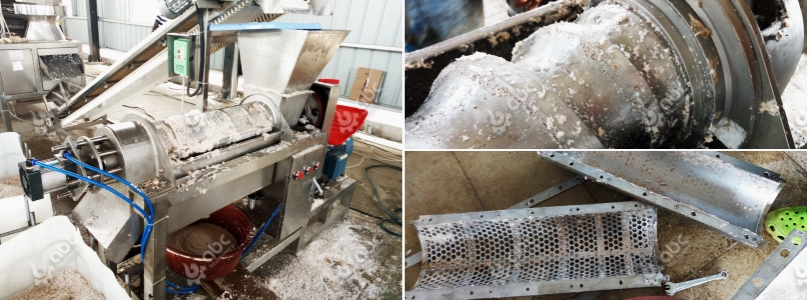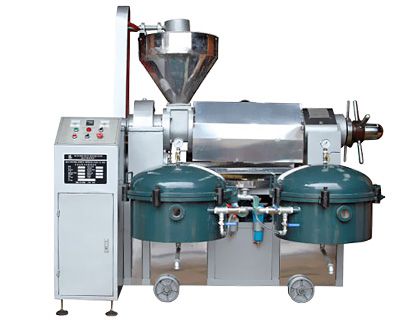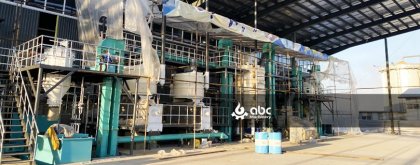
High-Quality Virgin Coconut Oil Extraction Machine Manufacturer
Extraction Differences Between Virgin and Expeller-Pressed Coconut Oil
Virgin coconut oil refers to high-purity coconut oil that has not undergone refining, bleaching, and deodorization (RBD) processes, typically produced using wet extraction methods. Virgin coconut oil (VCO) and expeller-pressed coconut oil represent two distinct processing technologies within the coconut oil extraction industry. The virgin coconut oil machine used for cold pressing operates below 45°C, while expeller-pressed systems typically exceed 100°C. This temperature difference can cause a 5–10% variance in oil yield and a significant impact on flavor retention and antioxidant content.
Understanding “Virgin” and “Expeller Pressed” Standards
The term “virgin” indicates oil extracted from fresh coconut meat without chemical refining or bleaching. By contrast, expeller-pressed coconut oil is mechanically extracted using high pressure and moderate heat, resulting in a slightly roasted aroma. According to the Asian and Pacific Coconut Community (APCC), the maximum moisture content for VCO is 0.1%, while expeller-pressed oil can reach up to 0.3%.
Cold Pressed Virgin vs. Mechanical Pressed Coconut Oil Extraction : Technical Parameters
In a cold press virgin coconut oil vs expeller pressed setup, pressure levels stay under 60 bar, compared to 120–150 bar in hot pressing. The cold press vs expeller press coconut oil difference is also reflected in energy consumption — approximately 0.6 kWh/kg for cold pressing versus 0.9 kWh/kg for mechanical systems. While the former preserves lauric acid levels (48–52%), the latter often achieves 3–5% higher throughput.
| Parameter | Virgin (Cold Press) | Expeller Pressed |
|---|---|---|
| Temperature | <45°C | 100–120°C |
| Pressure | 50–60 bar | 120–150 bar |
| Oil Yield | 55–60% | 60–65% |
| Moisture Content | 0.1% | 0.3% |
| Energy Use | 0.6 kWh/kg | 0.9 kWh/kg |
Impact on Oil Quality
Cold-pressed VCO maintains up to 90% of its natural tocopherols, enhancing oxidation stability up to 12 months. In contrast, expeller-pressed oil typically stabilizes at 8 months. The aroma profile of VCO registers 30% higher sensory preference in consumer testing.
- Nutritional Value: Cold-pressed oils retain 95% of lauric acid and polyphenols.
- Flavor Integrity: Maintains coconut’s natural fragrance without thermal degradation.
- Shelf Stability: Achieves lower free fatty acid content (<0.1%).
Recommended Application Scenarios
For premium edible oil brands or cosmetic-grade production, cold press virgin coconut oil machines deliver superior oil clarity and purity. Expeller-pressed systems suit industrial frying or soap manufacturing sectors where yield optimization outweighs sensory attributes.
Enhance product quality with precision-engineered extraction – consult our process engineers to design your ideal virgin coconut oil plant today.
Introduction to Virgin Coconut Oil Machines
Modern virgin coconut oil machine systems integrate crushing, drying, pressing, and filtration in a single modular setup. Each unit typically handles 200–500 kg of coconut meat per hour with 55–60% oil yield. Most models use stainless steel SUS 304 for food-grade compliance and a screw-type cold press oil machine design for efficient extraction.

Advanced Virgin Coconut Oil Making Machine for Sale
Compact configurations are particularly suitable for startups or small-scale processing facilities. The cold press oil machine design allows temperature monitoring sensors, keeping extraction below 45°C to ensure nutrient retention.
Typical throughput:
- 200 kg/hr for entry-level systems.
- 800 kg/hr for medium commercial units.
- 1,500 kg/hr for industrial setups.
Invest in efficient cold press cooking oil equipment for consistent quality and long-term operational savings – contact us for detailed technical specifications.
Layout and Optimization of Commercial Virgin Coconut Oil Production Lines
A virgin coconut oil (VCO) manufacturing plant must integrate mechanical, thermal, and filtration systems seamlessly to maintain efficiency and oil quality. Typical industrial setups include:

Guide to Extraction Virgin Coconut Oil Process
- Raw Material Preparation –Raw coconuts are washed, cleaned, and ground to fine coconut meat. All equipment should be kept clean and stable to ensure hygiene and smooth operation.
- Pressing System –The prepared coconut meat is mechanically pressed using a screw press driven in the anticlockwise direction. Proper connection, rotation, and compressed air support must be checked before operation.
- Separation & Filtration –The extracted coconut milk goes through two-stage centrifugal separation to remove solids and moisture, followed by fine filtration to obtain clear crude oil.
- Drying & Cooling –The filtered oil is vacuum-dried at about 90°C and 6 KPa to reduce moisture to 0.1%, then cooled and polished-filtered to achieve final purity and stability.
- Heat Transfer Oil System Operation –A conductive oil furnace supplies heat up to 320°C for drying and refining. Temperature should rise gradually (10–30°C per hour), and the system must be monitored for pressure, flow, and oil condition to ensure safe, stable operation.
Optimization Focus Areas
Line design must minimize product loss, energy use, and contamination risk. In optimized systems, industrial coconut oil production facilities can reduce energy consumption by 15–20% and improve yield by up to 8%.
Most 5 TPD plants achieve ROI in 18–24 months with continuous 16-hour operations. Equipment layout should ensure easy maintenance, ergonomic access, and hygienic drainage systems.
Boost production efficiency with integrated extraction line design – collaborate with our engineering team for custom plant layouts.
Equipment Procurement and Cost Control in Virgin Coconut Oil Projects
Efficient procurement of a virgin coconut oil extraction machine involves evaluating output capacity, energy performance, and service lifespan. A 1 TPD unit generally costs USD 15,000–25,000, while a 10 TPD turnkey line ranges from USD 120,000–180,000 depending on automation level.

5TPD Virgin Coconut Oil Production Line in the Philippines
Equipment Selection and Budget Strategy
Choose equipment based on production goals:
- Small Scale (≤500 kg/hr): Ideal for local niche markets.
- Medium Scale (1–5 TPD): Balanced investment and productivity.
- Large Scale (≥10 TPD): Automated control systems with MES (Manufacturing Execution System) integration.
Maintenance costs typically account for 3–5% of total investment annually, while power consumption averages 0.8 kWh/kg of oil produced. Smart energy monitoring can save up to 10% of operational expenses.
Balancing investment and oil quality requires prioritizing yield optimization without compromising nutrient preservation. Cost optimization in coconut oil extraction also depends on efficient manpower utilization and preventive maintenance cycles (every 500 operating hours).
Get your customized virgin coconut oil machine price plan and engineering proposal – reach out to our experts for a detailed cost breakdown today.
coconut oil extraction technologies continue to evolve with sustainable design and automation. The virgin coconut oil machine plays a crucial role in achieving higher efficiency, consistent quality, and scalability for modern processors.
We receive enquiries in English, Español (Spanish), Русский язык (Russian), Français (French) and العربية (Arabic).Our professional team will reply to you within one business day.Please feel free to contact us!



 Screw Oil Press
Screw Oil Press Small Oil Mill Plant
Small Oil Mill Plant Small Oil Refinery
Small Oil Refinery Automatic Oil Press
Automatic Oil Press Multifunction Oil Press
Multifunction Oil Press Hydraulic Oil Press
Hydraulic Oil Press


![[Presidential Visit] Zimbabwe 30 Tons/Day soybean oil plant for Extraction and Refinery Was Successfully Completed](/uploads/allimg/soybean-oil-plant-press-refine-business-lp.jpg)

